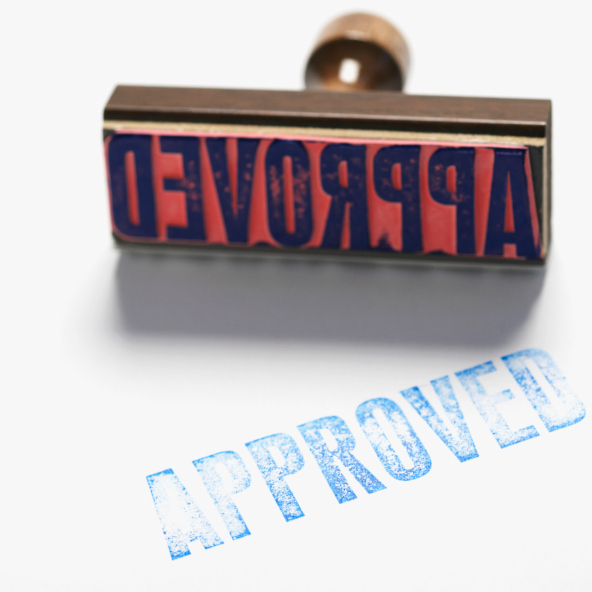 If you’re in the market for a new home, you’ll most likely need a mortgage in order to afford it. But for some home buyers, getting a mortgage isn’t easy. Banks and other lenders are often hesitant to lend money to certain consumers, often for good reason.
If you’re in the market for a new home, you’ll most likely need a mortgage in order to afford it. But for some home buyers, getting a mortgage isn’t easy. Banks and other lenders are often hesitant to lend money to certain consumers, often for good reason.
But sometimes, lenders’ reasons for declining you aren’t entirely valid. That’s why, if you’ve been denied for a mortgage, you’ll want to keep trying to get mortgage funds. Here are three factors that can influence the likelihood of approval on the second try.
A Second Appraisal Might Change Your Circumstances
Sometimes, a mortgage lender will deny a loan because the property value of the home in question isn’t large enough to back the loan. If your mortgage lender declines you because of a poor loan-to-value ratio, getting a second appraisal could help. A lot of appraisal companies will give wildly different appraisals on the same property, with some brokers reporting valuation differences of up to $1.3 million.
Bear in mind that you cannot get two appraisals through the same lender, so if you choose to have the home appraised a second time, you’ll need to find a new lender.
Cleaning Up Your Credit Report Can Work Wonders
What’s on your credit report will have a large role in determining whether or not you get the mortgage you want. If you’ve been denied because of entries on your credit report, you’ll want to take every step possible to correct those report issues. If you’ve been more than 30 days late on a payment in the past, it will show on your credit report and affect your score – but by calling your creditor and asking them to remove the negative, you can bring your credit report back into good standing.
You’ll also want to pay off any and all past due balances as soon as possible. If you can’t pay what you owe in full, you’ll want to negotiate with your creditor to pay part of the amount. This will result in the debt showing on your credit report as “paid as agreed”, which will boost your credit score.
An Extra Down Payment May Be A Good Idea
Sometimes, a lender will decline a borrower if the borrower is asking for too much money. If you’re pursuing a mortgage worth more than 95% of the property value, you’ll probably be declined. But if you make an extra down payment, you can lower your loan amount – which may incline your lender to approve your application.
If you’ve been declined for a mortgage, don’t give up. As you can see there are steps you can take to get approved.
 The mortgage process is a long and complicated one, with a number of similar-sounding terms that can easily confuse first-time homebuyers. A pre-approval is not the same thing as a pre-qualification, and it’s important to understand everything that goes into a pre-approval. Being declined during the pre-approval process means you’ll have a hard time getting the funds you need to buy your home, so it’s important that you know what the process is going to look like before going into it.
The mortgage process is a long and complicated one, with a number of similar-sounding terms that can easily confuse first-time homebuyers. A pre-approval is not the same thing as a pre-qualification, and it’s important to understand everything that goes into a pre-approval. Being declined during the pre-approval process means you’ll have a hard time getting the funds you need to buy your home, so it’s important that you know what the process is going to look like before going into it. If you’re about to seek approval for a mortgage, you’ll want to ensure you have a solid credit score and clean financial records to boost your likelihood of being approved. There are certain characteristics that lenders want to see in a mortgage applicant before they agree to give a loan, and you want to prove that you’re a responsible borrower. But certain behaviors can easily tank your application and crush your home ownership dreams.
If you’re about to seek approval for a mortgage, you’ll want to ensure you have a solid credit score and clean financial records to boost your likelihood of being approved. There are certain characteristics that lenders want to see in a mortgage applicant before they agree to give a loan, and you want to prove that you’re a responsible borrower. But certain behaviors can easily tank your application and crush your home ownership dreams. Mortgage closing costs have been coming down in recent years, which is good news for buyers. But if you’re buying a home in the near future, you’ll want to ensure you’re prepared to take full advantage of these lower fees – after all, keeping more money in your pocket is always good. When you close on your mortgage, take these three steps and you’ll find that you’ll pay far less in closing fees than most buyers would.
Mortgage closing costs have been coming down in recent years, which is good news for buyers. But if you’re buying a home in the near future, you’ll want to ensure you’re prepared to take full advantage of these lower fees – after all, keeping more money in your pocket is always good. When you close on your mortgage, take these three steps and you’ll find that you’ll pay far less in closing fees than most buyers would. So you’ve found the perfect home, the seller has accepted your offer, and now you’re just waiting for the mortgage to close before you wrap up the sale and take possession. It’s time for the closing meeting.
So you’ve found the perfect home, the seller has accepted your offer, and now you’re just waiting for the mortgage to close before you wrap up the sale and take possession. It’s time for the closing meeting. Christmas is just around the corner, and if you’re in a position to do it, paying off a family member’s mortgage is one of the biggest gifts you could give this holiday season. A mortgage can be a heavy burden on a young homeowner, which is why paying it off is the ultimate act of charity. But when it comes to paying for someone else’s mortgage, the process isn’t entirely straightforward.
Christmas is just around the corner, and if you’re in a position to do it, paying off a family member’s mortgage is one of the biggest gifts you could give this holiday season. A mortgage can be a heavy burden on a young homeowner, which is why paying it off is the ultimate act of charity. But when it comes to paying for someone else’s mortgage, the process isn’t entirely straightforward.